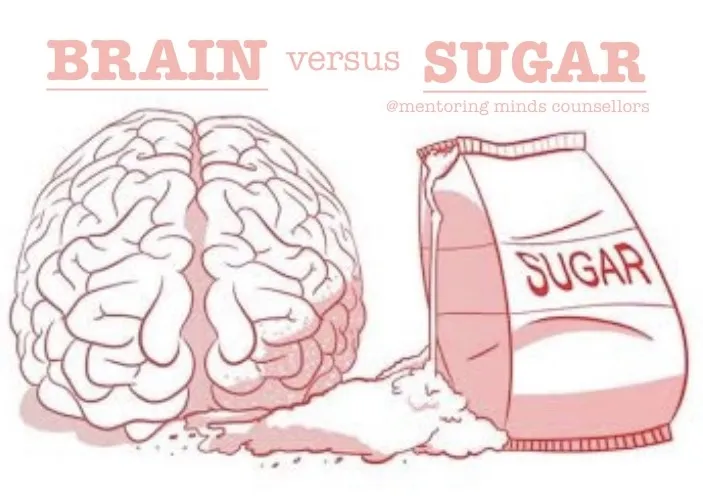Sugar has long been a staple in our diets, providing quick energy and making our food taste delicious. But what’s happening in our brain when we consume it? Is sugar as harmless as it seems, or is it causing a deeper impact on our brain’s function and overall health?
1. The Instant Energy Boost
When you eat sugar, your body breaks it down into glucose, which enters the bloodstream and provides an immediate energy source. The brain, being the most energy demanding organ, thrives on glucose. This is why you might feel a quick surge of energy and alertness after consuming something sweet. In fact, glucose is essential for cognitive function, memory, and focus.
However, this energy burst is often short-lived. The more refined the sugar, the quicker your body processes it, leading to a sudden spike and then a rapid crash in blood sugar levels. This is why you might feel fatigued or “foggy” after your initial energy rush fades.
2. Sugar’s Impact on Dopamine
One of the major ways sugar affects the brain is by triggering the release of dopamine, the feel-good neurotransmitter. This is the same system activated by drugs like cocaine or amphetamines, though on a much smaller scale. Dopamine is responsible for feelings of pleasure and reward, which is why eating sugar can feel so satisfying.
The more sugar you consume, the more dopamine your brain releases, which creates a sense of pleasure. Over time, the brain may crave more sugar to get that same rewarding feeling, leading to a cycle of overconsumption. This is why sugar has been compared to addictive substances it activates the brain’s reward system and can lead to cravings, making it hard to resist that sweet temptation.
3. The Long Term Effects
While sugar may provide a temporary high, it can have more harmful long-term effects on the brain. Chronic overconsumption of sugar has been linked to an increased risk of mental health issues, including anxiety, depression, and memory problems.
Excessive sugar intake can also contribute to insulin resistance, a condition where the body becomes less responsive to insulin, the hormone that regulates blood sugar. Insulin resistance has been associated with neurodegenerative diseases, such as Alzheimer’s, because the brain’s ability to use glucose efficiently starts to decline. This means that over time, too much sugar can literally slow down the brain and impair cognitive function.
4. Sugar and Inflammation
Another way sugar impacts the brain is by promoting inflammation. High sugar consumption leads to a state of chronic low-grade inflammation in the body, which can affect brain function. This inflammation is thought to play a role in various brain disorders, including depression, anxiety, and even cognitive decline. Inflammation disrupts the brain’s ability to communicate effectively, leading to mood swings, difficulty concentrating, and other cognitive issues.
5. Sugar and Memory
Sugar also seems to interfere with memory. Studies have shown that high sugar intake can impair both short-term and long-term memory. In particular, it affects the hippocampus, a part of the brain responsible for forming and storing memories. Chronic sugar consumption may even make it more difficult for the brain to encode new information, which could lead to forgetfulness or difficulty concentrating.
6. The Bottom Line
We at Mentoring Minds Counsellors understand that while sugar isn’t inherently “bad” and can provide a quick source of energy, consuming it in excess can have significant consequences for the brain. The short-term rewards of sugar may lead to long-term cognitive issues, including memory problems, brain fog, and an increased risk of mental health disorders.
Moderation is key. Enjoying the occasional treat is fine, but it’s important to be mindful of how much sugar is in your diet. By limiting processed sugars and opting for more natural, nutrient-dense sources of energy, you can keep your brain in top shape and avoid the pitfalls of sugar’s addictive nature.
So, the next time you reach for that sugary snack, remember that while it may give you a quick boost, it’s the long-term effects on your brain that matter most. Keep that in mind, and you can make choices that benefit both your body and mind!


Leave a Comment